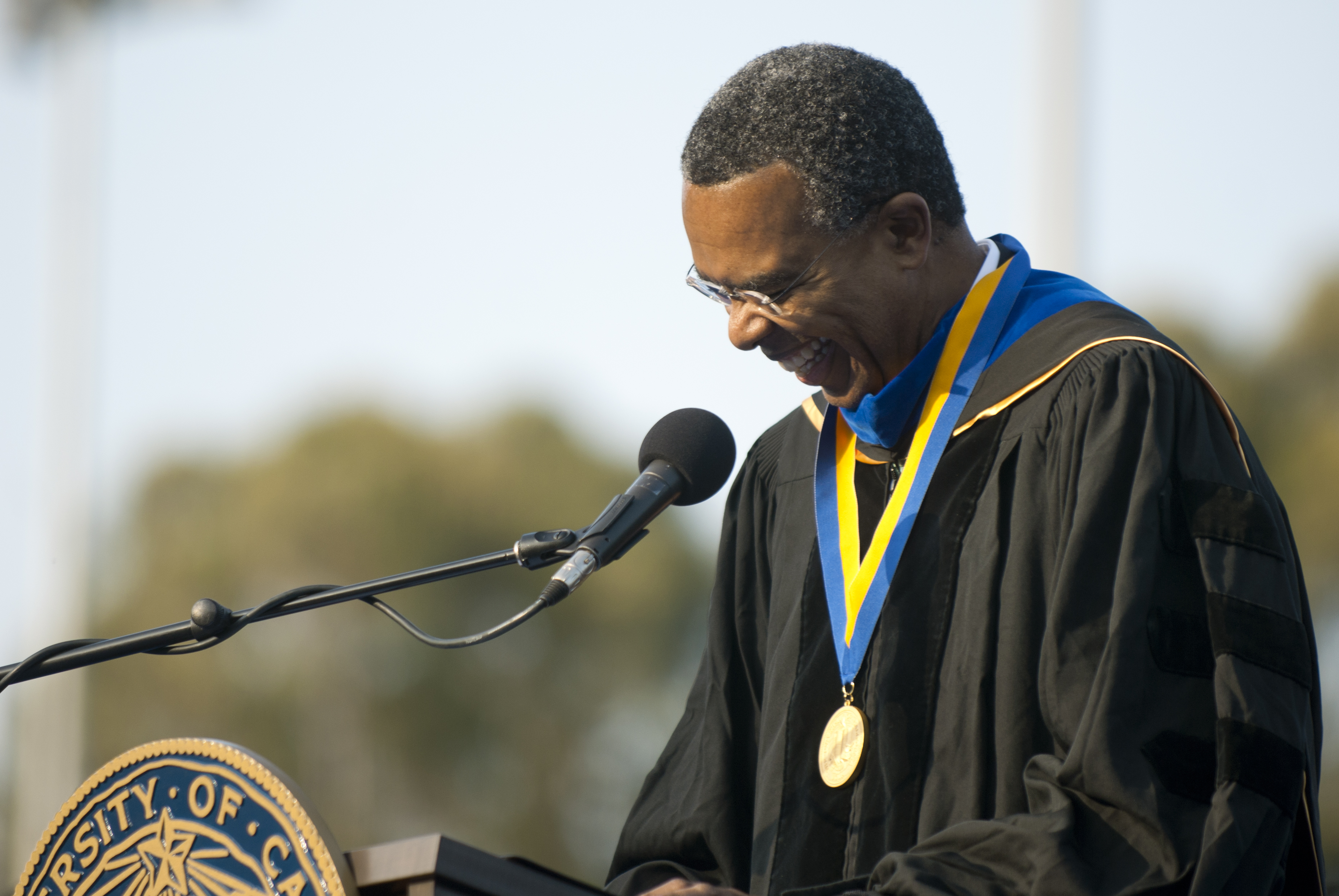Q&A: Peace Corps director, commencement speaker Aaron Williams emphasizes UCLA graduates' responsibility to serve community

Keynote speaker Aaron Williams laughs after delivering a joke during his speech.
By Shoshee Jau
June 12, 2011 8:51 p.m.
An estimated 4,400 students walked the stage of the College of Letters and Science commencement Friday. In a speech that joked about the quirks of UCLA and applauded the accomplishments of the university, Aaron Williams, director of the Peace Corps, challenged students to participate in service through the roles they take after they graduate. This year’s service-themed commencement highlighted the achievements of UCLA students who have dedicated their four years to their communities.
Before the ceremonies began, the Daily Bruin sat down with Williams to talk about service, jobs and the class of 2011.
Daily Bruin: What is one thing you believe young graduates today should understand?
Aaron Williams: Besides pursuing your own professional goals and to stay in college and to choose a job, remember that service in our nation continues to be important, whether you go into business or healthcare or education, always find ways to be of service to fellow man and woman, now more than ever before, in the 21st century.
DB: What specifically makes the 21st century different from earlier times?
AW: As we become a more complicated nation, and as the world becomes a more complicated and more independent place, there is a need for us to reach out and help each other become good citizens and help each other take on greater challenges of our century, from climate change, poverty, improved education, challenges presented by major diseases in the world ““ HIV/AIDS, malaria ““ all require people to serve as professionals in an organization. Or you can serve after-hours as a volunteer after you’ve carried out your full day as a stockbroker or banker, as a doctor or lawyer.
DB: Is there really an advantage for young people to stretch boundaries?
AW: I want students to try to imagine that you can play a role in grappling with some of the great problems that face the world … and I want to remind them that they are about to graduate from one of the greatest institutions of the world. That comes as an awesome responsibility to play a leadership role and coming up with unique solutions to these problems. So we’re going to be looking at the graduates today to be the leaders of the future ““ we’re counting on them.
DB: What skills do you feel are the most important for leaders to have to make a difference?
AW: The first thing is they have been educated in one of the finest academic institutions in the world. So they’re going to have the academic preparation which will enable them to move into professions where they decide to go. Secondly, we need people who are determined to make a difference and find solutions to tough problems and find creative ways to address them. At a university like UCLA, one of the things you learn is problem-solving, working together in teams, trying to come up with multiple solutions to difficult problems. All of this is part of a skill set you pick up at UCLA.
DB: What is the most daring thing you’ve seen a graduate do?
AW: The most daring thing I’ve seen of a recent college graduate has been to go into a remote part of West Africa, (where) she was assigned to be a science teacher in a school. But she quickly understood that there was a problem with malaria in the area, and even though she wasn’t trained, she took it on as a secondary project because she saw that this was a major problem for the health of families and children. She brought the community together and said, “You as a community can do something about malaria, and I am prepared to help you do it if you think it’s important.” So she created an NGO in that region that demanded government service to combat malaria, and then she helped them solicit money from outside of the country. That was a really daring thing to do ““ she could have easily said, “My job here is to teach,” but all around, she saw the need. It was one of the most innovative, daring and heroic things I’ve seen. She did it based on the priorities of the village, not her own.


